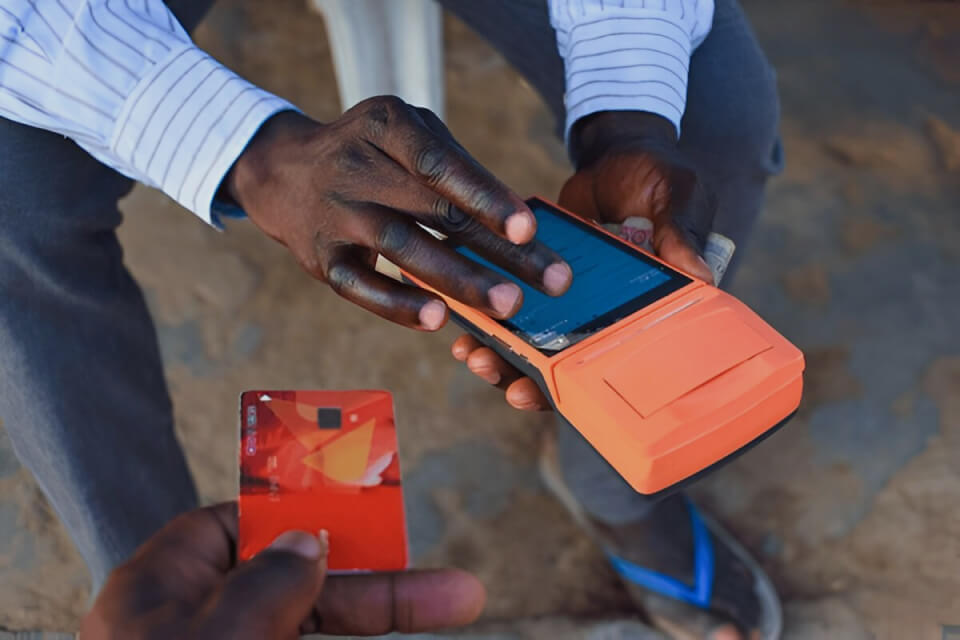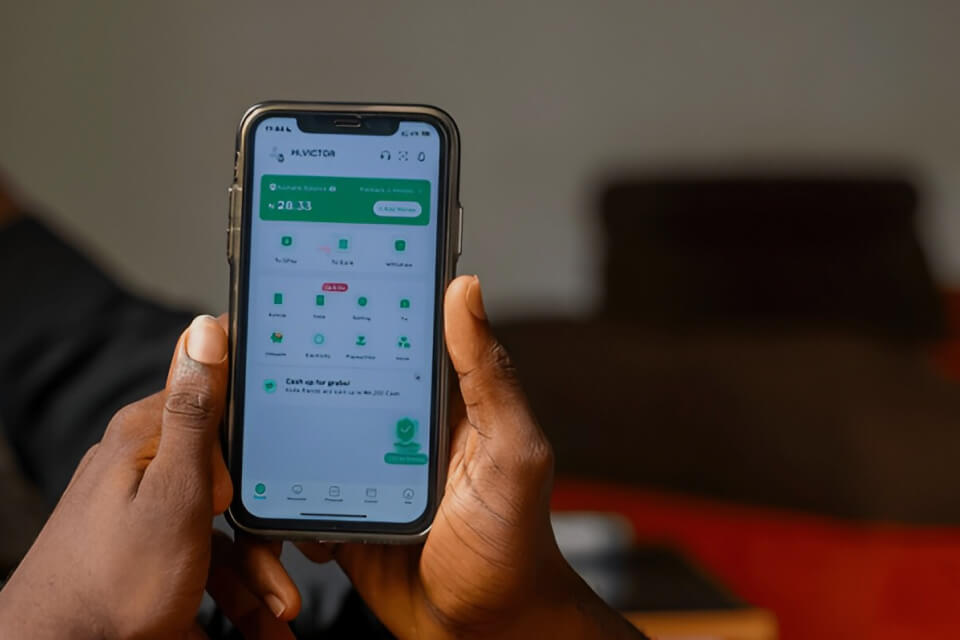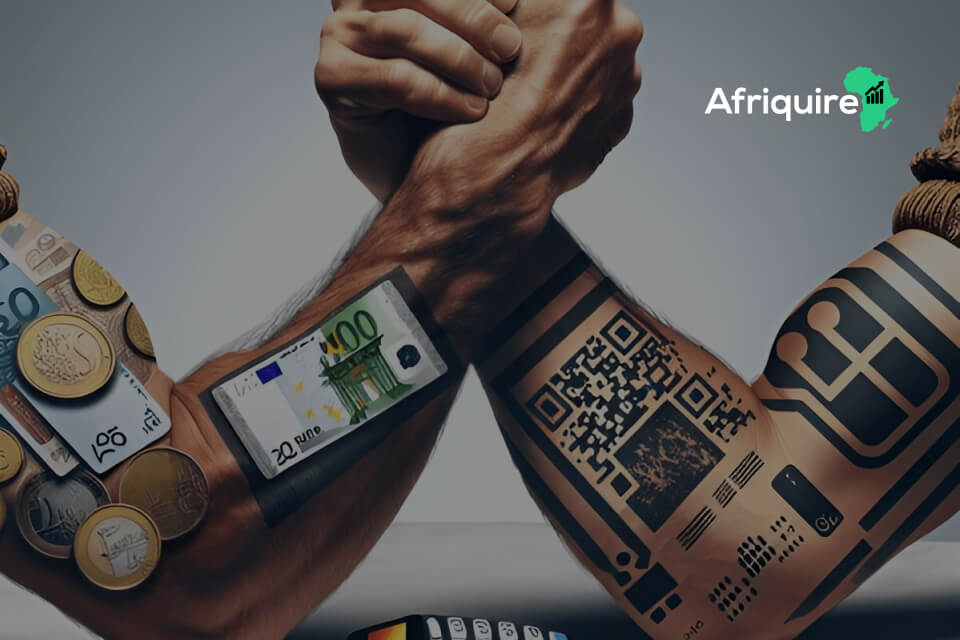Digital payments have improved financial services and made it more accessible for people. Despite these improvements, several challenges affect the progress of digital payments. Solving these problems is important for the growth of digital payments in African e-commerce and making financial services accessible to more people. This article not only discusses these problems but also suggests strategies to overcome them.
Infrastructure and Technological Barriers
Limited Internet and Mobile Network Coverage
Digital payments need good internet and good mobile networks. But in some parts of Africa, especially rural areas, there are limited internet and mobile network connections. While digital payment platforms work very well in urban areas, it can be challenging to get good connections in rural areas. This hinders them from utilising digital payments, and that hampers financial growth. Widening mobile networks is required to make digital payments reach more Africans.
High Cost of Digital Payment Infrastructure
Establishing and maintaining digital payment systems does not come cheap. Firms that provide payment services spend a significant amount of money on installing payment machines, network upgrades, and protection from fraud. Because of these costs, they charge high transaction fees, making digital payments expensive for small businesses. Small shops and street vendors do not have the money to install digital payments. Together, governments and companies can reduce the cost of digital payments for everyone and cut expenses.
Lack of Interoperability Among Payment Systems
Some digital payment systems don’t work with each other. Unlike traditional financial institutions, it’s hard for customers that use digital payment to move money from one system to another. For example, an individual who is on one mobile money platform would not necessarily be able to transfer money to a friend who is on another platform. Other digital wallets also do not easily connect with bank accounts. This makes it difficult for businesses, farmers, and traders to use digital payments. To solve this, there is a need to ensure different payment platforms are connected to work within one system.
If these problems are tackled, digital payments will grow, allowing more companies to be successful and more people to enjoy banking services. This will stimulate Africa’s economy and increase financial inclusion in the continent.
Regulatory and Compliance Issues
Digital payments are growing very fast in Africa, but there are many challenges making it hard for individuals and organizations to use them as they want. One of the main issues is the different rules in each nation. The rules affect how payment service providers (PSPs) do their work and how people transfer or receive funds.
Complex and Inconsistent Regulations
Each African country has its own regulations for paying online. This makes it difficult for payment service providers (PSPs) to extend their business to multiple countries. Nigeria, for example, has extremely stringent licensing procedures, and Rwanda makes it easy to get approval for fintech companies. Because of this, companies face delays and extra expenses while taking their services across.
Also, advancements in technology in digital payments happen faster than governments can regulate. Innovations such as blockchain and mobile money are transforming payments, but governments are behind in updating their laws. It leads to problems like weak consumer protection and ambiguous compliance regulations. If African countries had similar regulations, digital payments would be more secure and convenient for everyone.
High Costs of Compliance
Companies that adhere to regulations must meet many requirements that are very expensive. Startups and small companies usually have a hard time with:
- Lengthy licensing processes: A lot of money and time is required to gain approval to operate.
- Anti-Money Laundering (AML) regulations: Companies must be vigilant about transactions to avoid fraud and illegal transactions.
- Know Your Customer (KYC) requirements: Companies must establish the identity of their customers, yet most countries in Africa don’t have a single national ID system. It is hence more difficult to verify.
Because of the cost of these mandatory fees, small and medium-sized enterprises do not have sufficient funds to penetrate the market. Governments should ease the situation by offering support or reducing such fees so that PSPs can grow and establish digital payments across Africa more easily.
Restrictions on Cross-Border Transactions
It is difficult to make financial cross-border transactions because each country has different rules. These obstacles decelerate and make cross-border payments more expensive. Some of the difficulties are:
- Different AML standards: Different rules in order to fight fraud from different countries.
- Currency exchange rules: Exchanging currency from one to another can be expensive.
The African Continental Free Trade Agreement (AfCFTA) is trying to overcome these issues by enabling cross-border payments. The pace is, however, slow owing to differences in technology and enforcement. If the barriers are removed, digital payments will make business easier to run.
Compliance issues and rules are also among the greatest challenges to African digital payments. Governments need to improve the system by collaborating and facilitating cross-border payments through better agreements. These reforms will enhance trust in digital payments, increase innovation, and enhance financial inclusion in Africa.

Security Concerns and Fraud Prevention
Rising Cases of Cybercrime and Digital Fraud
One of the biggest challenges facing digital payments in Africa is a rise in cybercrime and fraud. Fintech apps, mobile money services, and online shops are being targeted by hackers and scammers using advanced methods like ransomware, phishing, and business email compromise (BEC).
Africa experienced a ransomware incident in 2023 for every 15 organisations per week, above the world average. Ransomware attacks have dire repercussions—businesses lose money, and people’s personal information is stolen.
Using emerging technologies like Generative AI, the scammers are now creating fake identities and deep fake videos to scam people. Digital payment platforms lose millions of dollars each year. This, if it continues, will make people lose confidence in digital payments, and their adoption will be slowed in Africa.
Weak Cybersecurity Measures
The majority of African countries have weak cybersecurity laws and structures for protecting digital payments. According to the International Telecommunications Union (ITU), most African nations rank low in the world’s cybersecurity ranking because of weak policies and a lack of investment in security.
Some mobile money services still use old security measures, making it easy for hackers to take over accounts or steal user data. While new security features like biometric authentication are being introduced, they are not yet in place everywhere.
To reap the benefits of digital payments in Africa, security must be strong. If people are assured they are safe utilizing digital payments, more of them will utilize digital payments, and financial inclusion will increase.
Consumer Awareness and Education on Fraud Prevention
A large number of people don’t know how to recognize scams like phishing emails or fake payment requests. While awareness of cybercrime is increasing, most people still don’t know how to protect themselves. This lack of knowledge makes it simple for scammers to attack users. If more people were informed about online scams, there would be less fraud.
Public education campaigns and instructional programmes can inform users about ways to protect their accounts. Simple steps like activating two-factor authentication (2FA) can prevent fraud to a great extent.
Security is a big part of overcoming challenges facing digital payments in Africa. Governments, corporations, and consumers must work together to fight cybercrime. Stronger security systems, better fraud detection methods, and greater consumer awareness will give birth to trust in digital payments.

Consumer Trust and Adoption Challenges
Digital payments are transforming the way money is sent and received by people and businesses in Africa. However, there are some challenges facing their growth. Let us see what those challenges are and how they affect digital payments.
Fear of Fraud and Data Breaches
The majority of people in Africa are afraid to use digital payments because they fear fraud and theft of their information. Cybercrime hackers infiltrate accounts, steal money, and reveal confidential information. It makes people skeptical about whether online websites are safe or not.
To resolve this problem, payment services must become more secure and educate users about how to protect themselves from fraud. Without adequate security, many will avoid electronic payments.
Preference for Cash Over Digital Payments
Cash is still the preferred means of payment in Africa, especially rural regions. Most people are more comfortable with cash since they are used to it. Others also avoid electronic payments because they do not have stable internet connections or power supply.
To encourage digital payments, Africa needs better infrastructure, including reliable internet and power. People should also understand the benefits of cashless payments, such as speed and security in transactions.
Limited Understanding of Digital Payment Platforms
Africans lacking awareness of digital payment platforms cannot use them. Most people feel that mobile banking and online transactions are complex and therefore resort to using cash.
To counteract this, firms must make their platforms accessible to users. Training schemes and mass campaigns can also make it easy for more people to use digital payment systems.
Integrating Digital Payments with African Banks
To be effective, digital payments should seamlessly integrate with banks. In areas where payment systems are bank-integrated, consumers can transfer money between mobile wallets, bank accounts, and cards without stress.
Government and fintech companies must prioritize installing systems that exist in harmony with each other. This will make digital payments convenient for everyone.
How to Select the Ideal Digital Payment Solution
Businesses must select a digital payment platform that is secure, easy to use, and supports local currencies. When the right digital payment solution is chosen, it would be easy for consumers to trust these platforms.
The best options have:
- Strong fraud protection
- Low transaction fees
- Support for cross-border transactions
Having the right platform offers secure and frictionless payments for businesses and consumers.
How to Encourage More People to adopt Digital Payments
To encourage more people to use electronic payments, they must be aware of how they operate. Companies and governments can:
- Offer training on the use of electronic payment systems
- Offer incentives such as reduced fees for transactions
- Invest in more internet and power coverage
After people have knowledge about the benefits of electronic payments, they will be ready to make use of them.
Strategies for Overcoming These Challenges
Digital payments are becoming very important in Africa, especially as e-commerce grows. However, there are several challenges that need to be overcome for digital payments to work well across the continent. Let’s look at some strategies that can help tackle these challenges.
Investing in Digital Payment Infrastructure
One of the biggest challenges facing digital payments in Africa is the lack of proper infrastructure. Many areas do not have reliable internet access or enough mobile networks. To solve this, governments and private companies should invest more money into building better internet connections and mobile services. This means setting up more towers for mobile signals and ensuring that even rural areas have access to the internet. When people can easily connect online, they will be more likely to use digital payment systems.
Strengthening Regulatory Frameworks
Another challenge is the need for strong rules and regulations around digital payments. Without clear laws, it can be hard for businesses and consumers to trust these systems. Governments should create better regulatory frameworks that protect users while also encouraging innovation. This includes making sure that companies follow rules about data protection and fair practices. By having a strong legal system in place, people will feel safer using digital payments.
Enhancing Cybersecurity Measures
Cybersecurity is a major concern when it comes to digital payments. With so many transactions happening online, there is always a risk of fraud or hacking. To overcome this challenge, businesses must invest in better security measures like encryption and secure payment gateways. They should also educate their customers on how to protect themselves online, such as using strong passwords and being careful with personal information. When people know their money is safe, they are more likely to use digital payment methods.
Promoting Financial Literacy and Digital Payment Awareness
Many people in Africa still do not understand how digital payments work or why they are beneficial. This lack of knowledge can stop them from adopting these technologies. To promote digital payment adoption, it is essential to provide education on financial literacy and raise awareness about the advantages of using digital payments over cash transactions. Schools, community centres, and local organisations can hold workshops or seminars to teach people about these topics.
Encouraging Cashless Policies and Incentives
Finally, governments can play a big role by encouraging cashless policies through incentives. For example, they could offer tax breaks for businesses that accept digital payments or provide discounts for customers who use electronic methods instead of cash. By making it more attractive to go cashless, more people will start using digital payment systems regularly.
In conclusion, by working together on these strategies, we can help ensure that everyone has access to safe and efficient digital payment options as e-commerce continues to grow across the continent.

Frequently Asked Questions (FAQs)
1. Why is digital payment important for Africa?
Digital payments help people buy and sell things easily without needing cash. They can also help businesses grow by reaching more customers online.
2. What challenges do businesses face with digital payments?
Businesses often struggle with poor internet connectivity, high transaction fees, and a lack of trust from customers who may prefer cash over digital methods.
3. How does the government support digital payments?
Governments can create rules and regulations that make it easier for people to use digital payments safely. They can also invest in technology to improve internet access.
4. How can people learn about using digital payments?
People can learn through community workshops, online tutorials, or by asking friends and family who already use these services.
5. How can more people be encouraged to use digital payments?
Awareness can be promoted through education campaigns that show the benefits of using digital payments over cash and ensure that systems are user-friendly.
Conclusion
In conclusion, the challenges facing digital payments in Africa include issues like poor infrastructure, high costs, and lack of trust among users. However, overcoming these challenges is crucial for enhancing the role of digital payments in African e-commerce growth and promoting financial inclusion across the continent.
By integrating these systems with local banking solutions and encouraging adoption through education and government support, significant potential for sectors can be unlocked. Addressing these challenges will be key to ensuring that everyone benefits from the advantages of digital payment systems.
Focus Keyword: Challenges Facing Digital Payments in Africa



